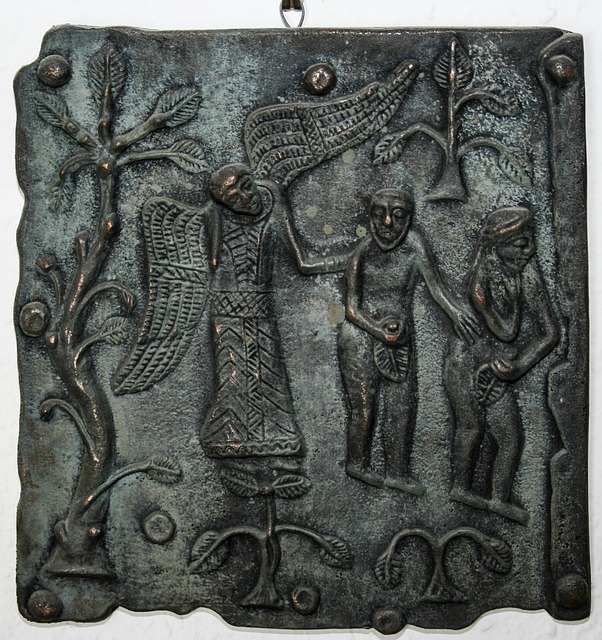Asset distribution mediation is a collaborative, confidential process that helps couples divide marital assets equitably during divorce. By fostering open communication and carefully assessing all shared wealth, mediators ensure fair retirement account, investment portfolio, and property division. This cost-effective approach significantly reduces legal fees compared to litigation, providing a peaceful and efficient resolution for complex estate matters involving diverse assets like real estate and investments. Real-world case studies demonstrate its success in achieving fair settlements while preserving the couple's shared history.
Looking for a fair and efficient way to divide assets in a divorce? Consider asset distribution mediation. This approach offers couples an alternative to contentious court battles, facilitating cooperative decision-making about real estate, retirement accounts, and shared investments. By engaging a neutral third party, or mediator, couples can navigate complex financial matters with mutual respect and reach equitable agreements. Discover the benefits, selection criteria for mediators, step-by-step processes, and inspiring case studies in our comprehensive guide to asset distribution mediation.
- Understanding Asset Distribution Mediation: A Neutral Ground for Divorce Settlements
- The Benefits of Mediation in Equitable Property Division
- How Mediation Facilitates Fair Decision-Making for Real Estate and Investments
- Choosing the Right Mediator: Qualifications and Expertise in Financial Matters
- The Process: Step-by-Step Guide to Effective Asset Distribution Mediation
- Case Studies: Successful Mediation Results in Complex Divorce Cases
Understanding Asset Distribution Mediation: A Neutral Ground for Divorce Settlements

In the emotionally charged atmosphere of a divorce, reaching a fair and equitable property division can be challenging. Asset distribution mediation offers a neutral ground where couples can navigate this complex process with the help of a professional mediator. This approach facilitates open communication and collaborative problem-solving, ensuring that both parties’ needs and interests are considered.
Unlike contentious negotiations, asset distribution mediation encourages a cooperative mindset. The mediator acts as an impartial third party, guiding discussions and assisting the couple in reaching mutually agreeable decisions regarding real estate, retirement accounts, and shared investments. This structured process promotes transparency, reduces conflict, and ultimately leads to a more satisfying and lasting settlement for both individuals involved.
The Benefits of Mediation in Equitable Property Division

Mediation offers a powerful and beneficial approach for couples going through a divorce to navigate the complex process of equitable property division. This alternative dispute resolution method provides a more collaborative and cooperative environment compared to traditional litigation. By engaging in asset distribution mediation, divorcing partners can gain several advantages, ensuring a fairer outcome for all involved.
One of the key benefits is the preservation of privacy. Mediation sessions are confidential, allowing couples to discuss sensitive financial matters without the public exposure associated with court proceedings. This privacy encourages open and honest communication, enabling each party to fully disclose their assets, retirement accounts, and investment portfolios. As a result, mediators can facilitate a comprehensive evaluation, ensuring every element of the couple’s shared wealth is considered and distributed equitably. Additionally, mediation promotes cost-effectiveness, as it reduces legal fees typically associated with lengthy court battles, providing a more affordable solution for settling property division disputes.
How Mediation Facilitates Fair Decision-Making for Real Estate and Investments

Mediation provides a collaborative approach to settling property division disputes, ensuring that each spouse receives their fair share of assets like real estate and investments. This process facilitates open communication between parties, allowing them to make informed decisions together. By focusing on mutual understanding and agreement, mediation helps avoid the acrimony often associated with court battles over asset distribution.
During mediation sessions, experienced facilitators guide spouses through the evaluation and prioritization of their shared properties, including real estate holdings, retirement accounts, and investments. This structured process enables couples to consider not just legal ownership but also emotional attachment and practical needs. As a result, decisions about property division are more balanced and less likely to leave one spouse feeling aggrieved or undercompensated.
Choosing the Right Mediator: Qualifications and Expertise in Financial Matters

The Process: Step-by-Step Guide to Effective Asset Distribution Mediation

The Process: Unraveling the Steps for Successful Asset Distribution Mediation
Asset distribution mediation involves a structured process to ensure a fair and equitable split of marital assets, including real estate, retirement savings, and shared investments. The first step is preparation, where both parties meet with their respective attorneys to gather and organize financial documentation. This includes bank statements, investment portfolios, tax returns, and property appraisals. A neutral mediator then facilitates open communication between the couple, encouraging them to share their desires and concerns regarding asset division.
The mediation sessions themselves are guided by the mediator, who helps the partners navigate through each marital asset, discussing options for distribution. This may involve proposing creative solutions or considering alternative approaches, such as selling a property and dividing the proceeds. The goal is to reach an agreement that satisfies both parties’ needs while minimizing legal costs. Throughout this process, the mediator maintains confidentiality, ensuring a safe space for candid discussions about the future of their shared assets.
Case Studies: Successful Mediation Results in Complex Divorce Cases

In complex divorce cases where assets include real estate, retirement accounts, and shared investments, asset distribution mediation has proven to be a game-changer. Real-world case studies illustrate the effectiveness of this approach in ensuring fair and equitable settlements. For instance, one high-asset divorce involved a couple with multiple properties, substantial retirement savings, and significant unmarital investments. Through mediation, they were able to negotiate a division that considered both their future financial needs and the preservation of their shared history, leading to a mutually agreeable outcome.
Another case featured a couple who had built their wealth through years of joint ventures and business partnerships. The mediation process facilitated open communication, allowing them to carefully evaluate each asset’s value and determine a fair split. This resulted in a comprehensive agreement that addressed not only liquid assets but also illiquid investments, ensuring both parties received a just share of their combined estate. These successful outcomes demonstrate how asset distribution mediation can navigate even the most intricate financial landscapes, providing a peaceful and efficient resolution to divorce-related property disputes.
